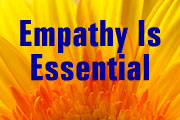 Pride Is One of the Most Important and Misunderstood Aspects of Happiness
Pride Is One of the Most Important and Misunderstood Aspects of Happiness
Pride in a job well done, pride in doing the right thing, in your accomplishments, your integrity or in the family you raised, are all very positive and healthy.
Pride Is An Important Part of Feeling Good About Ourselves, It Is a Healthy Part of Happiness.
Pride can also be a very bad, dangerous defect. What’s the difference? Here are some examples…
False Pride – Places too much emphasis on what other people may think or how they may react. Other people’s opinions of us run our lives. We become directed by fears and concerns about what other people think. False pride can prevent us from seeking and accepting the help we need to survive and thrive. False pride can cause us to try too hard to impress other people.
Superior Pride – Raises people up and places them above others, separating and isolating them with an inflated sense of self importance. We all know people with stuck up superior pride, they are attractive only to themselves. Their attitude says, “I am better than you and the rest of the world.”
Perfectionistic Pride – Demands that things be perfect in order to be acceptable and that we accept only the very best. Anything less is inferior and unworthy. Perfectionistic pride wastes time, resources and destroys happiness. It is exclusive and exclusionary. Perfectionistic pride limits our willingness to explore, try new things, to enjoy differences.
Each of These Negative Forms of Pride Defeat Our Desires to Be Happy and Spiritually Successful. Recognize and reject them and replace them with happy, successful responses.
How Do We Decide If Pride Is Positive or Perverse? Ask, is it helpful or hurtful? Does our pride expand and enhance our lives and opportunities or does it limit them? Is it a genuine expression of love, delight and affection? Or is it a twisted, limiting, false elevation and pseudo enhancement of self?
Trumpeting Triumphs is Not Bragging! Celebrating successes, trumpeting triumphs and delighting in good deeds all motivate us to do more and are important to happiness, enthusiasm and success. Bragging is very different. Bragging says, “I am better than you are…!”
Trumpet Triumphs, Celebrate Successes, Delight in Good Deeds, All Are Part of Healthy Pride and Are Keys to Happiness and Spiritual Success!!!!
For more see: Happiness Habit.com
Copyright © 1999 – , Michele Moore. All Rights Reserved. This material may NOT be published, broadcast, distributed or rewritten without permission from the authors.

 Happiness Lessons From the Godfather
Happiness Lessons From the Godfather






